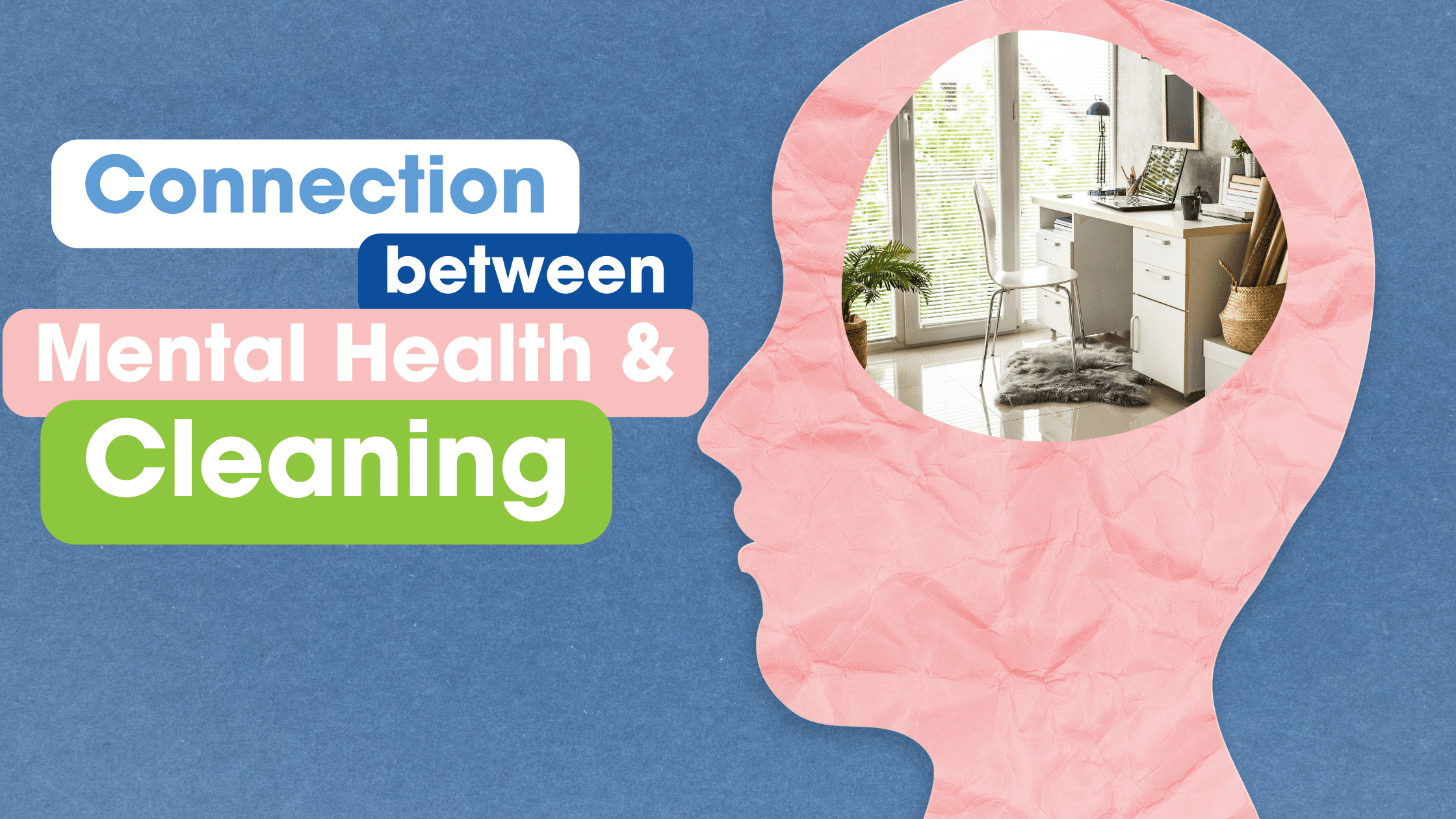In the pursuit of optimal mental well-being, we often overlook the profound impact our surroundings can have on our mental health. Surprisingly, the connection between mental health and cleaning is a topic of growing interest and importance. Let’s delve into the intricate relationship between the two and uncover how cleaning can significantly influence our mental well-being.
Mental health is as critical as physical health, yet often overlooked. It influences how we think, feel, and interact with the world. This article demystifies mental health, addressing common disorders and impacts on daily life, whilst outlining practical steps to improve your mental well-being.
The Importance of Mental Health

Mental health is a vast domain encompassing emotional, psychological, and social facets of well-being. It’s not just about the absence of mental health conditions or disorders. It’s about the ability to handle stress, recognize one’s own abilities, and contribute to the community.
At every life stage, mental health is crucial, influencing how we process thoughts, experience emotions, and behave. The significance of mental health can change over time due to life circumstances. Building resilience through positive social interactions, community cohesion, and fostering social and emotional skills is vital for promoting and maintaining mental health.
Emotional and Psychological Well-Being
Emotional and psychological well-being, an integral part of mental health, influences how individuals think, feel, and act. It plays a pivotal role in determining how people handle stress, relate to others, and make healthy choices. Mental health is crucial at every stage of life, starting from childhood and adolescence and continuing into adulthood. It is an essential aspect that should not be overlooked..
Maintaining emotional, psychological, and social well-being is essential for coping with life’s demands and sustaining good mental health.
Physical Health Connection
The connection between physical health and mental health is profound, each impacting the other. Mental health conditions such as stress, anxiety, and depression can lead to physical symptoms and can worsen the symptoms of existing physical illnesses.
Social Impact
Mental health doesn’t just affect the individual; it has significant social implications. Poor mental health can affect a person’s ability to live a fulfilling life, impacting school performance, work productivity, and family responsibilities. This can potentially lead to social isolation and strained family relationships.
It’s also important to note that marginalized communities face worse mental health outcomes due to historical inequalities, which can contribute to higher risks of homelessness, incarceration, and mental health problems.
Biological Factors and Environmental Influences
The causes of mental health conditions can be complex, involving a combination of:
- Genetic factors
- Abnormal functioning of neurotransmitter systems
- Brain structure differences
- Adverse childhood experiences
All of these factors can impact emotional and psychological well-being, influencing the risk of developing a mental disorder.

Understanding The Connection Mental Health And Clean Environment
Understanding the Connection: The link between mental health and cleaning goes beyond mere tidiness; it encompasses the physical act of cleaning and its psychological implications. Engaging in cleaning activities can serve as a therapeutic outlet, offering a sense of accomplishment and control over one’s environment. Moreover, a clean space can have a direct impact on our mood, cognitive function, and overall mental state.
Reducing Stress and Anxiety: Cluttered and untidy spaces can evoke feelings of stress and anxiety, hindering our ability to relax and unwind. On the contrary, cleaning and organizing our surroundings can alleviate these negative emotions by promoting a sense of order and calm. The act of cleaning provides a tangible way to declutter both our physical space and our minds, leading to reduced stress levels and enhanced mental clarity.
Fostering a Sense of Control: In times of chaos or uncertainty, cleaning can provide a sense of control and mastery over our environment. By taking charge of our surroundings and maintaining cleanliness, we assert agency over our lives and instill a sense of stability and empowerment. This feeling of control is crucial for maintaining positive mental health and resilience in the face of challenges.
Promoting Mindfulness and Presence: Cleaning activities, such as sweeping, mopping, or dusting, can be inherently mindful practices that encourage us to be fully present in the moment. As we engage in these tasks, we become more attuned to our surroundings and sensations, fostering a state of mindfulness and relaxation. This mindful approach to cleaning can help alleviate rumination and promote mental well-being.
Enhancing Mood and Productivity: A clean and organized environment can have a profound impact on our mood and productivity levels. Studies have shown that individuals working in clean and clutter-free spaces report higher levels of motivation, creativity, and overall satisfaction. By creating an environment conducive to productivity, cleaning can support our mental health and optimize our performance in various aspects of life.
Promoting a Clean and Healthy Environment for Mental Health

Creating a clean and healthy environment at home is essential for supporting mental health and well-being. By prioritizing home cleaning and maintenance, we can create a space that promotes relaxation, productivity, and overall happiness. Here are some key strategies for promoting a clean and healthy environment for mental health:
- Regular Cleaning Routine: Establishing a regular cleaning routine can help maintain a clean and organized home environment. Dedicate time each week to tasks such as vacuuming, dusting, mopping, and decluttering to keep your space tidy and inviting.
- Decluttering: Clutter can overwhelm the senses and contribute to feelings of stress and anxiety. Take time to declutter your home by getting rid of items you no longer need or use. Simplifying your space can create a sense of calm and promote mental clarity.
- Air Quality: Indoor air quality plays a significant role in our overall health and well-being. Keep your home clean and well-ventilated to ensure good air circulation and reduce the risk of respiratory issues. Consider incorporating air-purifying plants or using air purifiers to improve indoor air quality.
- Natural Light: Exposure to natural light has been shown to have positive effects on mood and mental health. Keep your home bright and airy by opening curtains and blinds during the day to let in sunlight. Positioning furniture near windows can also help maximize natural light exposure.
- Healthy Living Spaces: Create designated areas in your home for relaxation, exercise, and hobbies to promote a healthy lifestyle. Keep these spaces clean and organized to encourage regular use and support your overall well-being.
Benefits of Fresh Air and Green Spaces
Access to fresh air and green spaces contributes positively to mental health. These natural elements provide a calming effect and enhance individuals’ ability to manage emotions. Exposure to green spaces is associated with:
- Reduced symptoms of anxiety and depression
- Lowered stress hormone levels
- Improved mood
- Increased feelings of happiness and well-being
Promoting a clean and healthy environment at home is essential for supporting mental health and well-being. By prioritizing home cleaning and maintenance, we can create a space that fosters relaxation, productivity, and overall happiness. Incorporating regular cleaning routines, decluttering, improving air quality, maximizing natural light exposure, and creating healthy living spaces are key strategies for promoting a clean and healthy environment for mental health. Let’s prioritize home cleaning and maintenance to create a space that nurtures our mental well-being and contributes to a happier, healthier lifestyle.

